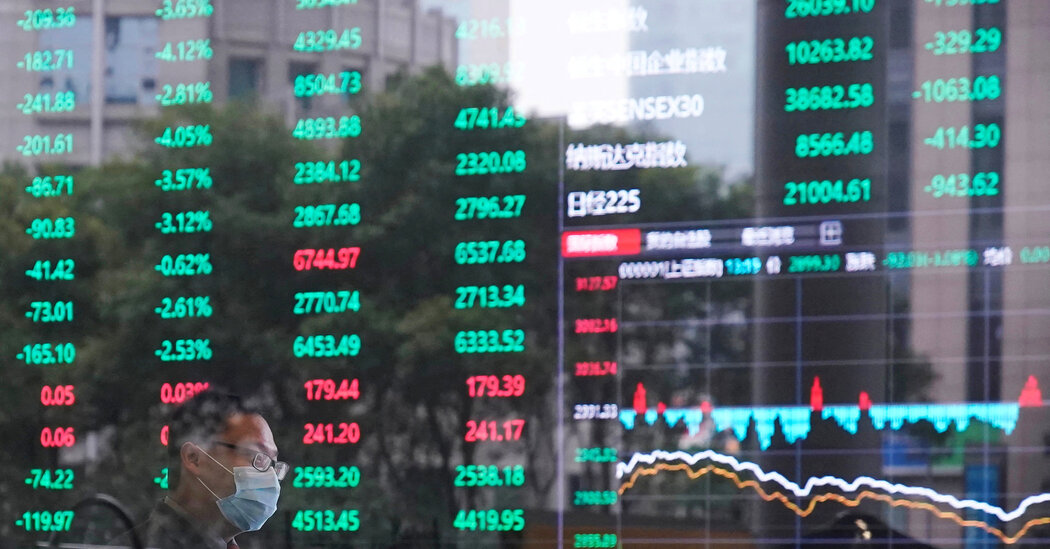About three weeks ago, at a meeting chaired by Xi Jinping, China’s leader, and officials I confess that China’s economy was facing “new difficulties and challenges”.
According to the official Xinhua news agency’s summary of the Politburo meeting, officials promised to stimulate the economy, which had begun to pick up at the beginning of the year after the lifting of Covid restrictions but was struggling. They said the economic problems arose from weak domestic demand and a “dismal and complex” global economy, among other factors.
Chinese stocks jumped at the time, though officials laid out only vague plans, such as using “countercyclical” regulations, adjusting policies for the troubled real estate sector, and urging people to buy cars, electronics and household goods.
Since then, China has released a series of worrying economic data. Consumer prices and corporate wages are falling, which increases the risk of deflation. Retail sales and industrial production in July missed economists’ expectations, and real estate investment is falling.
As a result, the stock market has lost its fizz.
The index of Chinese stocks traded in Hong Kong has fallen more than 9 percent this month. The Hong Kong-traded stock index, the Hang Seng Index, fell by a similar amount. Among its members is beleaguered Chinese real estate firm Country Garden, which has lost about half its value this month.
The CSI 300 stock index, which tracks the largest companies listed in Shanghai and Shenzhen, fell about 5 percent.
“The Chinese economy faces an imminent downward spiral with the worst yet to come,” analysts at investment bank Nomura wrote in a report on Tuesday. “Beijing should play the role of the lender of last resort to support some major developers and troubled financial institutions, and should play the role of the spender of last resort to boost aggregate demand.”
In fact, the People’s Bank of China, the country’s central bank, has cut its key interest rates to new lows. But critics say the moves were not bold enough. Wednesday brought more sad data: housing prices were It fell in 49 of the 70 major cities in the country.
Analysts at Barclays Bank said on Tuesday that the central bank will soon cut the amount of reserves banks need to hold in an effort to stimulate the economy. Barclays cut its forecast for economic growth in China this year to 4.5 percent from 4.9 percent. Analysts said that next year will be slower growth, with production increasing by 4 percent.
Barclays analysts said the two biggest issues for Beijing to tackle are the housing market and domestic spending, which has been hampered by high unemployment, particularly among young people. On Tuesday, China said it would stop releasing data on youth unemployment, which has reached a record 21.3%.
Analysts wrote that “the real estate sector continues to be a significant drag on the economic recovery,” adding that the recovery in domestic demand “has stalled amid high unemployment.”
Claire Fu Contribute to the preparation of reports.
